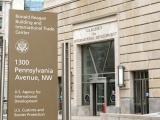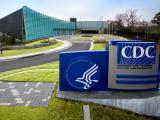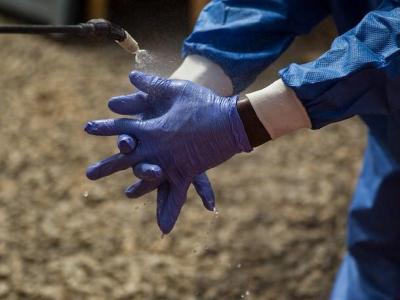Sep 13, 2010 (CIDRAP News) Many federal food safety workers say their work has been hampered by corporate interests, political pressure, and influence from other groups, according to a survey released today by the Union of Concerned Scientists (UCS).
At a press conference today, Francesca Grifo, director of the UCS's Scientific Integrity Program, said the interference that hundreds of food safety inspectors reported is bad for public health. "Both the administration and Congress need to act," she said in a press release. The Iowa State University (ISU) Center for Survey Statistics conducted the poll for UCS, a nonprofit health and safety group based in Washington, DC.
News that a number of federal food safety workers feel outside pressure in their work comes amid a major investigation into a national spike in Salmonella Enteritidis infections, which has triggered the nation's largest egg recall. The US Centers for Disease Control and Prevention (CDC) said about 1,500 illnesses have been linked to the outbreak so far.
Fallout from the recall and outbreak have also put pressure on the Senate to pass its version of food safety legislation, which would give the Food and Drug Administration (FDA) new authorities and tools to prevent and respond to foodborne illness outbreaks. The US House of Representatives passed its version of the legislation in July 2009, but action on the Senate version has been stalled since then.
ISU researchers conducted a Web-based survey of 7,911 federal food safety workers from the US Department of Agriculture and FDA that were identified from online public records. The 67-item survey was conducted from early April through May 20, 2010. They received 1,710 responses for a response rate of 21.62%.
About 38% of respondents agreed or strongly agreed with the statement that public health has been hurt by agency practices that defer to business interests. Twenty-seven percent said they had personally experienced instances when businesses withheld food safety information from agency investigators in the past year. A quarter responded that they knew of instances when corporate interests forced their agency to pull or revise policies or actions that were designed to protect consumers in the past year.
Similarly, when researchers asked if Congress or "nongovernmental groups" had forced their agency to withdraw or change food safety policies or actions in the past year, 24% and 22% said yes, respectively.
Dean Wyatt, a USDA veterinarian who supervises slaughterhouse inspectors, said in the UCS statement that the agency retaliates against inspectors who document legitimate safety violations. "Upper level management does not adequately support field inspectors and the actions they take to protect the food supply," he said. "Not only is there lack of support, but there's outright obstruction, retaliation, and abuse of power."
More than 100 respondents said agencies asked them to delete or change scientific information, the UCS report said. For example, 16% said they saw officials selectively use data to justify a particular regulatory outcome. Ten percent said their agencies had asked them to exclude or change information or conclusions in scientific documents. They said interference has decreased slightly under the Obama administration compared with the Bush years.
Grifo said respondents overwhelmingly said stronger whistleblower protections for inspectors and regulators would improve food safety. They also voiced support for other reforms, many of which are included in the passed House bill and the proposed Senate bill, such as requiring companies to conduct hazard analyses and implement prevention programs and improving the system for tracing food products.
The Obama administration could address some of the outside influence concerns raised in the survey by releasing a scientific integrity directive that the president promised more than a year ago, Grifo said. She added that the directive would protect whistleblowers, ensure that scientists and inspectors can speak freely about their work, and order agencies to release visitor logs to document visits to agency management.
See also:
Sep 13 UCS press release
UCS/Iowa State University food safety scientist survey



















